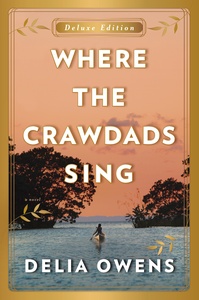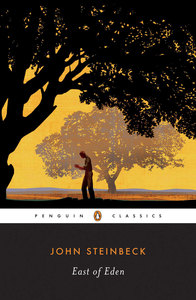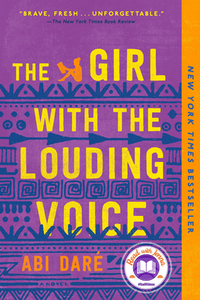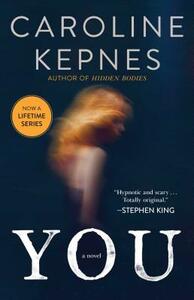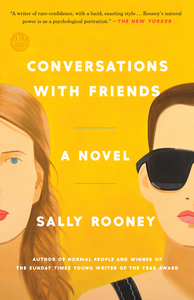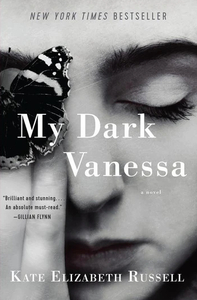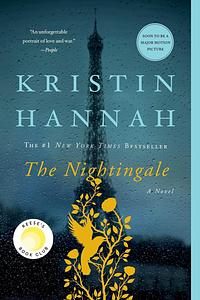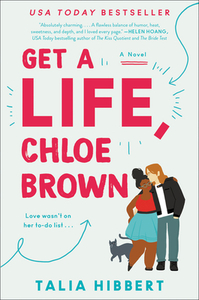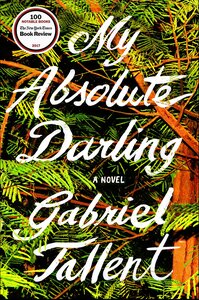Take a photo of a barcode or cover
dontjudgeabrooke's Reviews (192)
I was drawn to this book because of my lifelong proclivity for Beauty and the Beast-type stories, and while it was enjoyable, it wasn't quite what I was looking for.
Although Courtney Ellis's writing shows promise, you can tell she's a novice author. I didn't find the characters or the plot to contain enough conflict or intrigue, and I wasn't swayed to feel much for anyone. I predicted thatAnna was Julian and Lucy's daughter well in advance of the reveal, while I found the reveal behind Celia and Julian's years-long conflict to be weak and unrealistic. I also expected more mystery and suspense surrounding Julian's character, more akin to the Beast, Archibald Craven or, hell, even Rigoletto (please tell me someone else remembers Rigoletto). Instead, he immediately opens the door for Bertie the first time she knocks and gives her many of the answers she seeks the first time she asks . I also couldn't believe Julian would be so reckless as to get her pregnant after what happened to Lucy.
I enjoyed the atmosphere of the novel and still liked it better than most romances I've tried, but in the end, it was just okay.
*Listened to audiobook
Although Courtney Ellis's writing shows promise, you can tell she's a novice author. I didn't find the characters or the plot to contain enough conflict or intrigue, and I wasn't swayed to feel much for anyone. I predicted that
I enjoyed the atmosphere of the novel and still liked it better than most romances I've tried, but in the end, it was just okay.
*Listened to audiobook
I've become increasingly wary of super-hyped books and those chosen for celebrity book clubs, and I had also started reading this book a year ago and gave up about 30 pages in because I just couldn't get into it. In addition, it seems that in the wake of its initial craze, this book has recently begun to be a frequent answer to the prompts "popular books that disappointed you" and "books that don't deserve the hype." So when I restarted it this time, I went in with low expectations, dragging my feet.
But I...kinda loved it. The exploration of the effects of loneliness and isolation, the interweaving of the natural and manmade worlds with all their beauty and violence, getting to know Kya over the course of her life. Maybe it was the fact that I've moved to North Carolina since my last attempt and have visited the very coast Kya loves so much, I don't know. I kept waiting to hate it, but the hatred never came. There weren't even really any parts I disliked (aside from some minor timeline inconsistencies), although the chapters of HEAVY nature description in the beginning don't exactly suck the reader in right away. Actually, that aspect of the book reminded me of my most recent read, East of Eden. The first chapter of EoE is an extremely detailed description of the Salinas Valley, and I put that book down for a while after the first chapter for the exact same reason: I thought I would be similarly bored for the rest of the book, but I couldn't have been more wrong.
For my own recollection, I want to add one of my favorite reading memories ever: Last summer, my boyfriend and I spent a gorgeous July day trekking through a wooded creek for hours. For one long stretch, we even followed closely behind a mama duck and her babies. Once we reached a good swimming spot, we swam for a while and then read in the sunshine on the bank. This was the book I brought along that day, and in hindsight, it was the perfect choice.
*Listened to audiobook while following along with physical book
But I...kinda loved it. The exploration of the effects of loneliness and isolation, the interweaving of the natural and manmade worlds with all their beauty and violence, getting to know Kya over the course of her life. Maybe it was the fact that I've moved to North Carolina since my last attempt and have visited the very coast Kya loves so much, I don't know. I kept waiting to hate it, but the hatred never came. There weren't even really any parts I disliked (aside from some minor timeline inconsistencies), although the chapters of HEAVY nature description in the beginning don't exactly suck the reader in right away. Actually, that aspect of the book reminded me of my most recent read, East of Eden. The first chapter of EoE is an extremely detailed description of the Salinas Valley, and I put that book down for a while after the first chapter for the exact same reason: I thought I would be similarly bored for the rest of the book, but I couldn't have been more wrong.
For my own recollection, I want to add one of my favorite reading memories ever: Last summer, my boyfriend and I spent a gorgeous July day trekking through a wooded creek for hours. For one long stretch, we even followed closely behind a mama duck and her babies. Once we reached a good swimming spot, we swam for a while and then read in the sunshine on the bank. This was the book I brought along that day, and in hindsight, it was the perfect choice.
*Listened to audiobook while following along with physical book
You know it's good when you wish a 600-page book were at least a hundred pages longer. A new all-time favorite.
Adunni is such a vibrant, funny, loveable and utterly kind protagonist. I’ve gone for 26 years knowing next to nothing about Nigeria, so I’m really thankful to this book for teaching me so much about this country, its people and its culture. This book made my heart ache in so many different ways. A bit repetitive and drawn-out at times, and I wish there would have been an epilogue or some sort of other glance into the future, but definitely a story worth reading. I’m so grateful to have met Adunni and to have gained some insight into her world.
*Read for Pale Ales and Tales book club
*Listened to audiobook while following along with physical book
*Read for Pale Ales and Tales book club
*Listened to audiobook while following along with physical book
Another good road trip audiobook, but having already watched the show, I actually don’t think I gained much by reading the source material. This isn’t as much a critique of the show as it is a compliment to the show; I just think the Netflix adaptation was so well-done that listening to this felt like listening to an unnecessary play-by-play of the show. When I read a book after watching its adaptation, I want it to provide me with insight I couldn’t possibly have gotten on the screen, and I didn’t get that here. Definitely didn’t mind listening to Santino Fontana’s voice for 11 hours, though!
*Listened to audiobook
*Listened to audiobook
Nearly every Sally Rooney fan I’ve encountered seems to connect more with/get more out of either CWF or Normal People, and the split seems to be fairly even. Although I fall squarely into the Normal People camp, and although I don't think I've totally grasped the central message of this novel, I still appreciated and enjoyed reading this book and will continue to read Rooney's work.
dark
emotional
reflective
sad
medium-paced
Vanessa, wherever you are, I hope you’re okay. I won’t forget you.
Uh oh, time for me to be a party pooper again 😬 I’m beginning to sense a pattern here.
First of all, it took me more than 4 months to trudge through this book, and I eventually had to pick up other books to get myself back into reading again. I don't think I can bring myself to give a book that put me into such a deep reading slump anything more than 2 stars.
The best way I can sum up this book is that it has the vibes of a Lifetime movie about WWII. It feels like Kristin Hannah's aim was to cram every WWII-story trope into one bloated novel. I love learning about history and I love WWII stories, but I'd opt for a Band of Brothers-rewatch or a Book Thief-reread over this any day.
-Hannah's writing is, uh...not very good. It fell very flat for me, especially in scenes that should have been swollen with emotion. Despite this book being 500+ pages long, it weirdly devotes very little time or attention or ceremony to Rachel & Sarah's deaths. Vianne & Sophie are meant to be their best friends in the whole world, absolutely inseparable, but they each hardly react to their bffs' deaths in a way that feels cold and utterly unrealistic. We hardly hear Sarah & Rachel's names again after their respective murder/deportation, but we hear about how freezing cold the winters are approximately a billion times. I've gathered that Hannah's wheelhouse is "chick lit," and that very much comes across in these pages (was Antoine capable of speaking a single sentence that wasn't "I love you, Vianne?"). And although she attempts to imbue Vianne and Isabelle with some sort of character development, they both felt as two-dimensional and archetypal to me at the end as they did at the start.
-I feel a little weird about all the Jewish characters in a WWII book playing incredibly minor roles, especially when there's so much space to devote to their lives and stories.
-The editing is SHOCKINGLY bad, from beginning to end. In addition to several anachronisms and historical inaccuracies, there were inconsistencies everywhere, but here are just a few that really got my goat:
1. At the end of one scene, Rachel has decided to stay in Vianne's barn cellar rather than risk an escape to the border with her children. But she's apparently changed her mind by the beginning of the very next scene and attempts to escape to the border anyway. This results in Sarah's death for the very reason Rachel had initially decided to avoid the border--it was too dangerous. Sarah's death angered me more than it upset me, partially because it felt so avoidable. If Rachel had stuck to the initial plan (seriously, when did she change her mind???), Sarah might have lived.
2. I could never sort out which social class the Rossignols were meant to be. They somehow own an apartment near the Eiffel Tower despite Julien being a small bookstore owner & amateur poet, but Vianne lives in the countryside outside a small village on a farm that's been in the family for generations, and Vianne and her husband each work in humble professions, but they live in a large home with lots of fine possessions and 65,000 francs saved up in their twenties? No comprendo.
3. Okay, so Vianne makes a trip to the border twice. The first time, she goes with Rachel and Sarah on foot and Sarah is fatally wounded, but she doesn't die until they get her back to Le Jardin. However, when Vianne goes with Gaëtan *by wagon* the second time, it takes them 1.5 HOURS to get from Le Jardin to the very same spot on the border. So you're expecting me to believe that this little girl's chest was riddled with bullet holes, but she survived the 2+ hour trip back to Le Jardin so she could conveniently have one last emotional conversation with her mom before drawing her final breath in the most melodramatic way possible? Uh, no. I'm not buying that for a second. Oh, and that's another thing–everyone in this book dies mid-sentence. How conveniently inconvenient.
-Speaking of which, there were lots of convenient inconveniences throughout these pages. Rachel gets caught and deported because she leaves Vianne's cellar to walk next door to her house for diapers, all the while knowing mass deportations are taking place in Carriveau that day, and the police just happen to show up outside Rachel's house right at that very moment.
-The framing device is largely pointless. Besides the final chapter, it provides no additional information, no real insight or reflections on what happened in the past.
-WE GET IT, ISABELLE'S UNBELIEVABLY BEAUTIFUL AND NO MAN CAN RESIST HER ohhhh myyyyy gooooosh. When beauty is a female character's primary trait in a male-written novel, I can at least sort of understand why. But Kristin, Mrs. Hannah, why must you do this to your fellow females? Isabelle is an uncommonly strong, brave, headstrong heroine–why is it absolutely imperative that she also be the most gorgeous creature the world has ever known? So she can talk about how "ugly" she is after returning from Ravensbrück? She survived for months in a concentration camp, and her only concern before reuniting with Gaëtan is how "ugly" she is?! Disgraceful. I only had about 10 pages left in the book at that point, but it still made me want to throw it at the wall.
-After reading through the story of Andrée de Jongh, the real-life inspiration for Isabelle, I have to wonder why Hannah didn't just write a biography about de Jongh instead of essentially ripping every specific detail from her awe-inspiring life and attributing them to a fictional character. My guess is it's because Hannah wanted to make her blonde and breathtakingly gorgeous and so she could turn her acts of heroism into the backdrop for a tragic love story. Don't care for that.
-In the same vein, Isabelle's half of the story should have been absolutely RIVETING, but I somehow found myself looking forward to Vianne's parts than Isabelle's. I'm not even sure how that's possible.
In short, this is a deeply-flawed book full of one cliche after another, but that's evidently worked in its favor, as seen by its mass appeal. I'm giving it two stars because, despite everything, I still enjoy WWII stories and I was still somewhat invested in the fates of these characters. It also inspired me to research certain events and places I'd never heard of before by mentioning them in throwaway lines: Oradour-sur-Glane, the Ardeatine massacre, the Vel d'Hiv roundup.
But look, I'm a total hair-trigger when it comes to shedding tears, and that's the #1 thing people who love this book will tell you going into it: It will make you sob. Nope, not once. Not even close 🤷🏻♀️ I came away from this book emotionally unmoved.
First of all, it took me more than 4 months to trudge through this book, and I eventually had to pick up other books to get myself back into reading again. I don't think I can bring myself to give a book that put me into such a deep reading slump anything more than 2 stars.
The best way I can sum up this book is that it has the vibes of a Lifetime movie about WWII. It feels like Kristin Hannah's aim was to cram every WWII-story trope into one bloated novel. I love learning about history and I love WWII stories, but I'd opt for a Band of Brothers-rewatch or a Book Thief-reread over this any day.
-Hannah's writing is, uh...not very good. It fell very flat for me, especially in scenes that should have been swollen with emotion. Despite this book being 500+ pages long, it weirdly devotes very little time or attention or ceremony to Rachel & Sarah's deaths. Vianne & Sophie are meant to be their best friends in the whole world, absolutely inseparable, but they each hardly react to their bffs' deaths in a way that feels cold and utterly unrealistic. We hardly hear Sarah & Rachel's names again after their respective murder/deportation, but we hear about how freezing cold the winters are approximately a billion times. I've gathered that Hannah's wheelhouse is "chick lit," and that very much comes across in these pages (was Antoine capable of speaking a single sentence that wasn't "I love you, Vianne?"). And although she attempts to imbue Vianne and Isabelle with some sort of character development, they both felt as two-dimensional and archetypal to me at the end as they did at the start.
-I feel a little weird about all the Jewish characters in a WWII book playing incredibly minor roles, especially when there's so much space to devote to their lives and stories.
-The editing is SHOCKINGLY bad, from beginning to end. In addition to several anachronisms and historical inaccuracies, there were inconsistencies everywhere, but here are just a few that really got my goat:
1. At the end of one scene, Rachel has decided to stay in Vianne's barn cellar rather than risk an escape to the border with her children. But she's apparently changed her mind by the beginning of the very next scene and attempts to escape to the border anyway. This results in Sarah's death for the very reason Rachel had initially decided to avoid the border--it was too dangerous. Sarah's death angered me more than it upset me, partially because it felt so avoidable. If Rachel had stuck to the initial plan (seriously, when did she change her mind???), Sarah might have lived.
2. I could never sort out which social class the Rossignols were meant to be. They somehow own an apartment near the Eiffel Tower despite Julien being a small bookstore owner & amateur poet, but Vianne lives in the countryside outside a small village on a farm that's been in the family for generations, and Vianne and her husband each work in humble professions, but they live in a large home with lots of fine possessions and 65,000 francs saved up in their twenties? No comprendo.
3. Okay, so Vianne makes a trip to the border twice. The first time, she goes with Rachel and Sarah on foot and Sarah is fatally wounded, but she doesn't die until they get her back to Le Jardin. However, when Vianne goes with Gaëtan *by wagon* the second time, it takes them 1.5 HOURS to get from Le Jardin to the very same spot on the border. So you're expecting me to believe that this little girl's chest was riddled with bullet holes, but she survived the 2+ hour trip back to Le Jardin so she could conveniently have one last emotional conversation with her mom before drawing her final breath in the most melodramatic way possible? Uh, no. I'm not buying that for a second. Oh, and that's another thing–everyone in this book dies mid-sentence. How conveniently inconvenient.
-Speaking of which, there were lots of convenient inconveniences throughout these pages. Rachel gets caught and deported because she leaves Vianne's cellar to walk next door to her house for diapers, all the while knowing mass deportations are taking place in Carriveau that day, and the police just happen to show up outside Rachel's house right at that very moment.
-The framing device is largely pointless. Besides the final chapter, it provides no additional information, no real insight or reflections on what happened in the past.
-WE GET IT, ISABELLE'S UNBELIEVABLY BEAUTIFUL AND NO MAN CAN RESIST HER ohhhh myyyyy gooooosh. When beauty is a female character's primary trait in a male-written novel, I can at least sort of understand why. But Kristin, Mrs. Hannah, why must you do this to your fellow females? Isabelle is an uncommonly strong, brave, headstrong heroine–why is it absolutely imperative that she also be the most gorgeous creature the world has ever known? So she can talk about how "ugly" she is after returning from Ravensbrück? She survived for months in a concentration camp, and her only concern before reuniting with Gaëtan is how "ugly" she is?! Disgraceful. I only had about 10 pages left in the book at that point, but it still made me want to throw it at the wall.
-After reading through the story of Andrée de Jongh, the real-life inspiration for Isabelle, I have to wonder why Hannah didn't just write a biography about de Jongh instead of essentially ripping every specific detail from her awe-inspiring life and attributing them to a fictional character. My guess is it's because Hannah wanted to make her blonde and breathtakingly gorgeous and so she could turn her acts of heroism into the backdrop for a tragic love story. Don't care for that.
-In the same vein, Isabelle's half of the story should have been absolutely RIVETING, but I somehow found myself looking forward to Vianne's parts than Isabelle's. I'm not even sure how that's possible.
In short, this is a deeply-flawed book full of one cliche after another, but that's evidently worked in its favor, as seen by its mass appeal. I'm giving it two stars because, despite everything, I still enjoy WWII stories and I was still somewhat invested in the fates of these characters. It also inspired me to research certain events and places I'd never heard of before by mentioning them in throwaway lines: Oradour-sur-Glane, the Ardeatine massacre, the Vel d'Hiv roundup.
But look, I'm a total hair-trigger when it comes to shedding tears, and that's the #1 thing people who love this book will tell you going into it: It will make you sob. Nope, not once. Not even close 🤷🏻♀️ I came away from this book emotionally unmoved.
To be clear, this isn’t a bad book, which is why I’m giving it two stars. As far as romances go, this has great representation and it’s a very sweet story.
But I still struggled to finish it, because I think I’m finally owning up to the fact that I just don’t get on with the modern romance genre in general. I’ve been reluctant to admit that, because I myself am such a hopeless romantic. I’m a sucker for love stories, love songs, any kind of romantic aesthetic, etc. But the books I’ve read in this genre have just NOT done it for me at all. They’re missing some kind of crucial unnameable ingredient that makes other love stories burrow into my heart and stay with me forever.
It’s incredibly difficult to describe what about this genre misses the mark for me without sounding snooty, so I’m just gonna go for it. I find these books to be a really bizarre combination of overly-simplistic/cartoonish and super explicit (but also not explicit enough? Like the smut isn’t really…good 😬). I end up coming away with zero emotional connection to the characters or any kind of investment in their relationship.
I guess I’ve come to the realization that I enjoy romances most in the form of classic novels, when they’re used to examine the psychology & interaction of deeply-flawed individuals (NORMAL PEOPLE) or when they’re incidental to a more complex story. Contemporary romance simply isn’t my jam. I’m sorry, Red & Chloe; I promise I really wanted to love you!
But I still struggled to finish it, because I think I’m finally owning up to the fact that I just don’t get on with the modern romance genre in general. I’ve been reluctant to admit that, because I myself am such a hopeless romantic. I’m a sucker for love stories, love songs, any kind of romantic aesthetic, etc. But the books I’ve read in this genre have just NOT done it for me at all. They’re missing some kind of crucial unnameable ingredient that makes other love stories burrow into my heart and stay with me forever.
It’s incredibly difficult to describe what about this genre misses the mark for me without sounding snooty, so I’m just gonna go for it. I find these books to be a really bizarre combination of overly-simplistic/cartoonish and super explicit (but also not explicit enough? Like the smut isn’t really…good 😬). I end up coming away with zero emotional connection to the characters or any kind of investment in their relationship.
I guess I’ve come to the realization that I enjoy romances most in the form of classic novels, when they’re used to examine the psychology & interaction of deeply-flawed individuals (NORMAL PEOPLE) or when they’re incidental to a more complex story. Contemporary romance simply isn’t my jam. I’m sorry, Red & Chloe; I promise I really wanted to love you!

